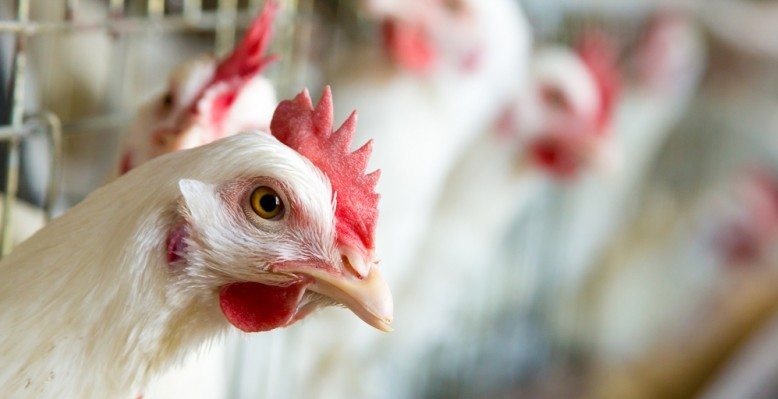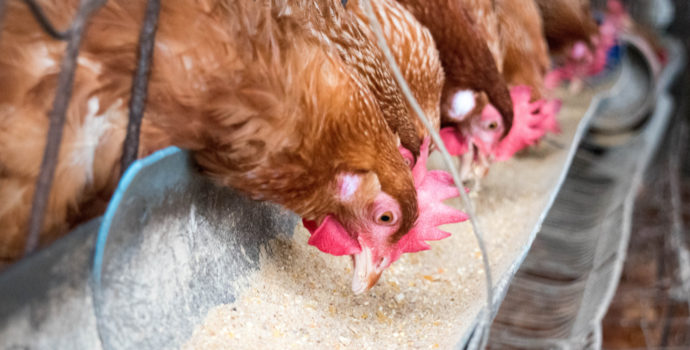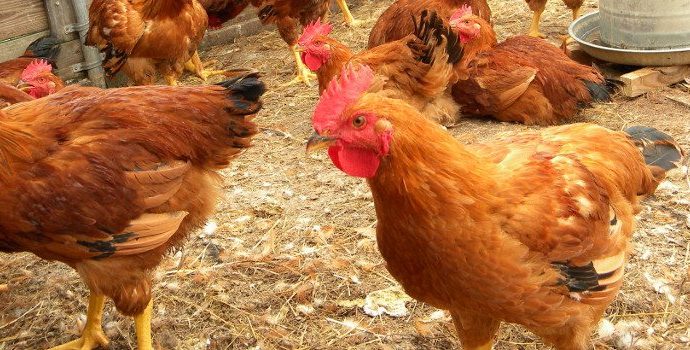
Market Report
DAFM report the weekly throughput of chicken to be up 7% compared to 2020 and now stands at 13.2 million birds’ year to date. While this is a significant increase in production, it is still not keeping pace with the increase in consumer demand for chicken. The demand at retail level for chicken, especially chicken fillet continues to increase by approximately 10% year on year.
Ireland is only 50% self-sufficient in chicken fillet and this figure is increasing due to the popularity of chicken meat with the Irish consumer. The industry has grown to meet this demand but there remains significant scope and opportunity for further increase in the Irish broiler poultry sector. The current Covid level-5 building restrictions are causing disruption to the production chain. There are currently 15 poultry building sites awaiting a commencement order from both Monaghan and Cavan County Councils. 15 broiler sheds have the capacity to produce 4.7 million broilers annually, equivalent to 9,500 tonnes of chicken meat. Putting this figure into context, this is equivalent to 31,000 cattle or the equivalent of one week of our national bovine kill from 15 broiler sheds. While the opportunity for additional growth in the sector is clear, as highlighted in their recent Thia Hennessy UCC economic report on the industry, this growth must be sustainable on three fronts. Environmental, financial and on a human/family aspect also.
Environmental Sustainability of poultry production, similar to all agriculture needs to be carefully considered by the industry. Poultry is the most efficient animal in terms of carbon output per kilo of production. Challenges however remain and poultry production is an intensive industry. Organic matter produced as litter must be carefully used as a resource. Broiler litter is a valuable fertiliser and soil conditioner for the Irish tillage sector. The problem is moving the litter from the source of production, which is predominantly in the northern border region and also in Co Limerick, to the productive tillage soils of Leinster and Munster. The IFA continued to engage with the nitrates Department in DAFM to ease the paperwork burden of exporting broiler litter throughout the year and encouraging the sustainable use of litter by tillage farmers.
Financial Sustainability of poultry production is a vital issue that the IFA has continually lobbied for improvements from processors. Farmers in Ireland continue to be paid on a contract basis by their processor. Increases in input costs coupled with lower stocking densities have combined to reduce farmer margins over the past two years. The IFA poultry committee is leading a campaign in the coming weeks to have increased margins for farmers from that main broiler companies – Manor Farm, Western Brand and Shannonvale.
Sustainability should also incorporate a human element. Being environmentally and financially sustainable is not enough. IFA will continue to protect the family farm structure in the Irish poultry sector.
Poultry Working Group (PWG)
The PWG funded economic report on the Irish poultry sector has been distributed to decision makers in the Department of Agriculture and key elected officials. Following a meeting with the Minister for Agriculture in December, the PWG were disappointed with the response from the Department of Agriculture in terms of providing financial assistance for a disease fund. A follow-on meeting has been requested with Minister Charlie McConalogue to seek commitment to co-finance a disease fund going forward for the poultry sector.
High Pathogenic Avian Influenza
Irish Department of Agriculture issued a housing order for all poultry on the 24th of December. This order requires that all poultry must be kept indoors, in order to protect the entire industry against the spread of Avian Influenza from the wild bird population. This housing order has been successful to date in that no further outbreaks of AI have been reported on the island since early January. The positive case of HPAI in turkeys in County Wicklow last December has caused huge damage to the industry. Many importing countries have restricted all poultry products from Ireland as a result. This loss of markets, in particular to China and South Africa, has caused major disruption to the bird carcase balance in Ireland. The Irish consumer has a strong preference for chicken fillet. We do not consume huge quantities of chicken wings, drumsticks, brown chicken meat or offal products such as feet and heads. An outlet for these products is needed and the industry is hopeful that markets will allow access again in the near future.
High Pathogenic Avian Influenza (HPAI H5N8) remains present in the wild bird population in all European countries, including the island of Ireland. This is the most transmittable version of LPAI, which resulted in the culling of over 500,000 birds, mostly laying hens, in the Republic of Ireland in spring 2020. It represents a major threat to small commercial poultry farmers. The National Disease Control Centre (NDCC) (part of DAFM) have communicated emerging information regarding positive cases in wild birds to the PWG, including farmers in recent weeks
Risk to Ireland regarding HPAI H5N8
- The disease is highly contagious for all birds.
- The risk to Irish poultry flocks from Avian Influenza has increased following the
- confirmation of H5N8 in wild birds in Ireland.
- The disease poses no food safety risk for consumers. Properly cooked poultry and poultry products, including eggs are safe to eat.
- Strict biosecurity measures are needed to prevent the introduction of AI into poultry and
- captive bird flocks.
- Flock owners should remain vigilant for any signs of disease in their flocks, and report any disease suspicion to their nearest Regional Veterinary Office.
- Members of the public are advised not to handle sick or dead wild birds. Please report sick of dead wild birds to the local Regional Veterinary Office of contact the DAFM disease hotline on 1850 200456.
- The Importance of biosecurity in poultry flocks at this time cannot be overstated. This applies to ALL flocks, irrespective of size.
| Andy Boylan Chair | Robert Malone Senior Policy Executive |


